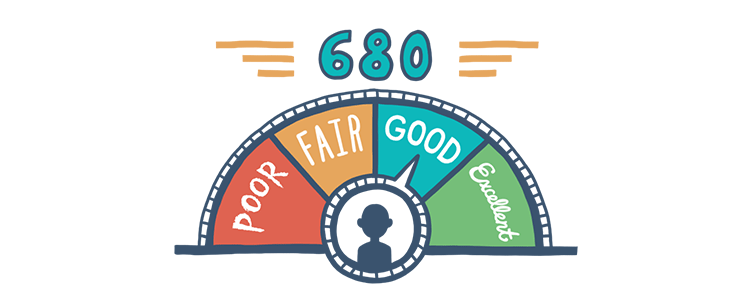About Credit Reporting

Potential homebuyers are constantly hearing about their credit. What their FICO score is, whether it's high enough. But where does this three-digit number come from? Who determines it? We have some answers for you.
What Is a FICO Score?
Your FICO score comes from an algorithm that uses a person's credit history to arrive at a number that reflects how creditworthy they are. The Fair Isaac Corporation debuted this formula in the 1950s and it has since become the most widely accepted credit score in the U.S. There have been a number of changes made to the original algorithm over time, making the scoring system fair to both lenders and consumers.
The FICO Factors
While we don't know the formula used to calculate the FICO scores, we do know it is based on 5 factors: the timeliness of your payments (which accounts for 35% of your score), the total debt you carry (counts for 30%), the age of your credit (15%), how frequently you apply for loans (10%), and the type and variety of debt you have (10%).
It's also important to note what doesn't affect your FICO scores. While credit applications can affect the score, "soft" credit checks do not. The score is not based on sex, race, marital status, religion, nationality, or age. Information about where you live, your job, salary, or the interest rates on your credit accounts is not factored into the score either.
All three major credit bureaus in the U.S.—Equifax, Experian, and TransUnion—calculate credit scores using FICO's algorithm and information they have collected about people's credit history.
What Are Credit Bureaus?
Credit Bureaus collect and maintain consumer credit information. Equifax, Experian, and TransUnion are the main credit bureaus operating in the U.S. as publicly traded, for-profit companies. Also known as Credit Reporting Agencies (CRAs), these bureaus compile information about your credit history—receiving it from lenders and pulling information from public records. They then sell this to other businesses as a credit report on each consumer. CRAs also apply the FICO equation to their reports to generate your credit score, so lenders can determine your creditworthiness.
Keep in mind that credit bureaus are not the ones making the decisions to grant you credit or determining your interest rate. Rather, they give lenders you do business with the tools and information to make those decisions.
Regulating the Bureaus
The U.S. government has introduced legislation in the form of the Fair Credit Reporting Act (FCRA) to monitor practices at credit bureaus. This act regulates how CRAs, including Experian, TransUnion, and Equifax, can and must operate. Because of the sensitive information these bureaus have access to and share about American citizens, they are strictly monitored by the Federal Trade Commission.

FHA Loan Articles
August 10, 2023FHA loans have specific rules and requirements for borrowers who have filed for bankruptcy. The guidelines can change over time, so it's essential to consult with a qualified lender or FHA-approved counselor for the most up-to-date information.
August 3, 2023FHA loans are primarily designed to help individuals and families purchase homes for use as their primary residences. Rules for these loans generally discourage their use for investment properties or rentals. However, there are exceptions that come with strict rules.
July 29, 2023One crucial aspect of FHA loans that borrowers need to understand thoroughly is debt ratios. In this article, we look at how they can impact your ability to secure financing for your dream home. Debt ratios help lenders understand a borrower's creditworthiness and any risks associated with the loan.
July 21, 2023Investing in a multi-unit property can be an excellent way to build wealth through rental income and property appreciation. FHA multi-unit property loans make this opportunity more accessible to a broader range of individuals. You must occupy a unit as your primary residence within 60 days of closing the loan.
July 15, 2023To qualify for an FHA loan, you must meet certain employment requirements. In this article, we'll dig into the FHA loan employment requirements so that you can understand what's needed to get approved for this type of mortgage.
July 7, 2023Manufactured homes, sometimes referred to as mobile or modular homes, are factory-built residences designed to meet or exceed national building codes set HUD. They offer cost savings and energy efficiency, making them an attractive housing option for many Americans.








